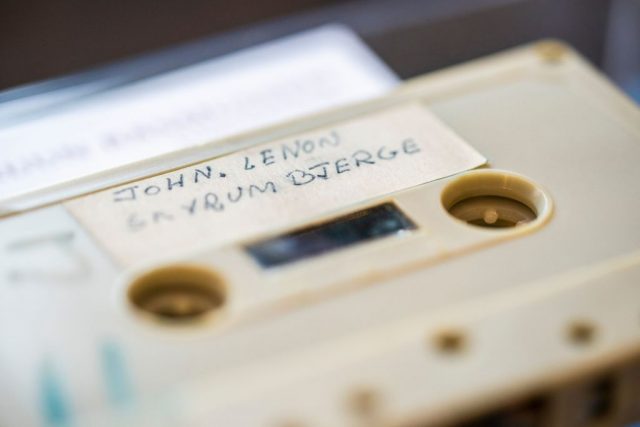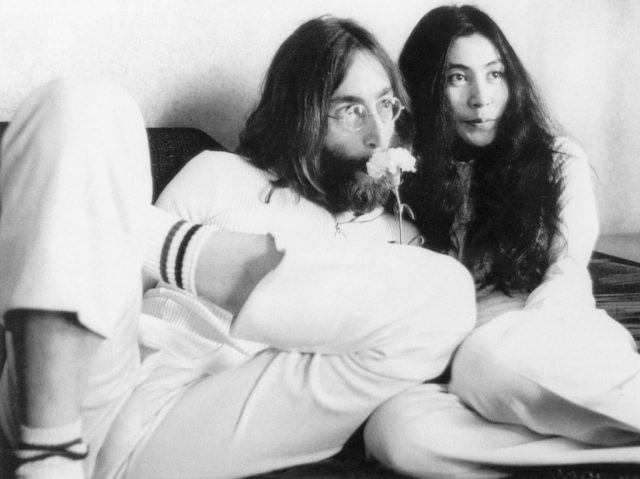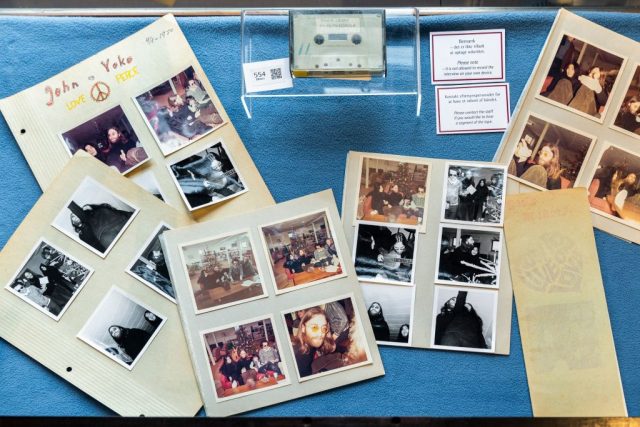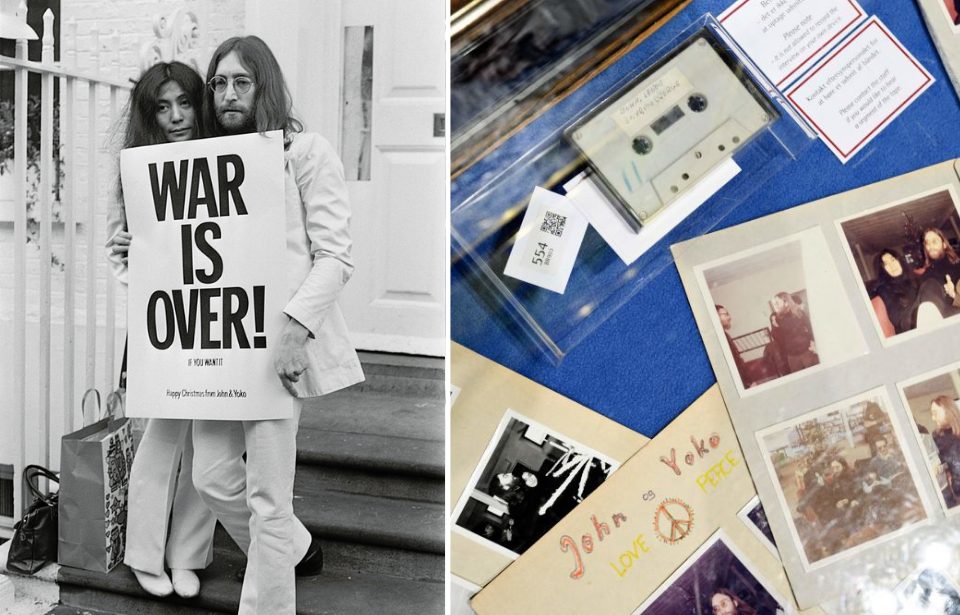A rare cassette tape featuring a recording of John Lennon and Yoko Ono has sold for nearly $60,000 at auction. The 33-minute audio track was recorded by four Danish teenagers in the winter of 1970, and features both an interview with the couple and a never-released song.

The auction was held at Bruun Rasmussen in Copenhagen, Denmark’s primary auction house. A copy of a school newspaper featuring the interview, as well as a collection of 23 photographs, were sold alongside the cassette tape. The tape sold for $58,300 to a buyer whose identity remains unknown. He placed his offer via telephone.
“A recording like this is indeed very rare,” director Alexa Brunn Rasmussen told the BBC. “We are not sure that there are any other recordings like this one, because it’s an unofficial recording.”

The recording was made on January 5, 1970, while Lennon and Ono were staying in Thy in Jutland, in the far northwest portion of Denmark. They had traveled to the area to settle a custody dispute between Ono and her ex-husband, Anthony Cox, over their daughter, Kyoko.
The four teenagers convinced a teacher to allow them to attend an event where Lennon and Ono were scheduled to appear. The quartet’s arrival was delayed by a snowstorm and they got there too late. Despite this, they and other journalists were invited in.
During the meeting, the teenagers interviewed the pair using a borrowed cassette recorder and microphone and took photographs. Karsten Hoejen, one of the four, described the meeting as “very cozy” and “relaxed,” and said that Lennon and Ono were sat on a couch with Cox, Kyoko, and Cox’s wife, Melinda.
At one point, the couple joined in a Danish tradition and danced around a Christmas tree. Lennon then grabbed a guitar and performed “Give Peace A Chance.” He and Ono also performed a short song titled “Radio Peace,” which they had originally written as the theme song for a radio station in Amsterdam. When that station failed to launch, the song remained unreleased.

More from us: Newly Unearthed Recording of a Beatles Meeting Changes Music History
Decades later, Hoejen realized he was in possession of a valuable piece of music history and placed it in a bank vault, before making the decision to put it up for auction.
“The experience had a great impact on our lives,” he said in the auction house’s catalog. “Back then, we were not as preoccupied with famous people as young people are today. Instead, we saw John Lennon and Yoko Ono as some kind of political prophets and symbols of peace.
“We shared a common destiny with them in relation to music and the progressive ideology of peace,” he added. “The two celebrities shaped our generation and the entire counter-culture movement.”
